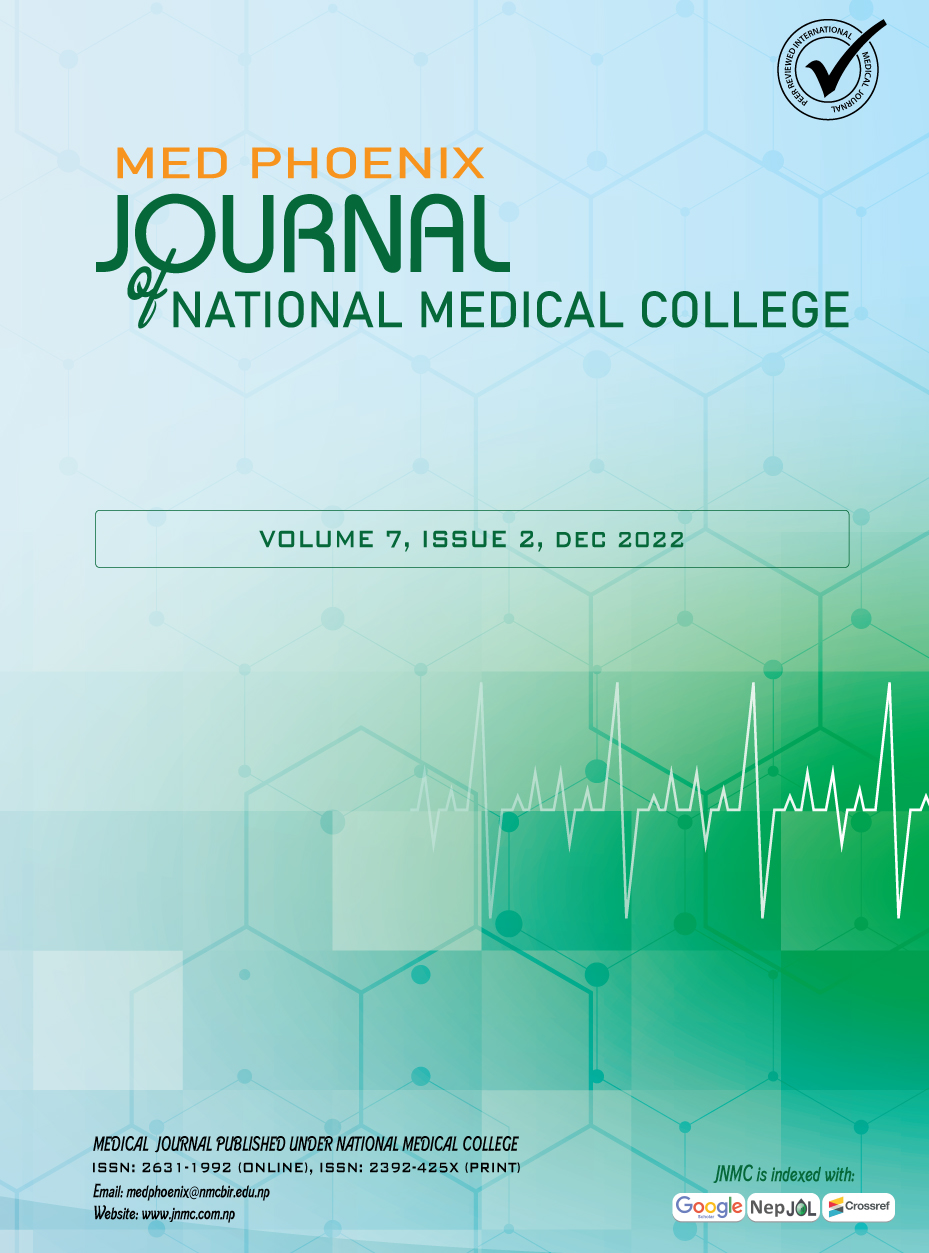Serum Carbohydrate Deficient Transferrin: A Sensitive Marker in Diagnosing Alcohol Abuse
DOI:
https://doi.org/10.3126/medphoenix.v7i2.50832Keywords:
Alcohol Dependence, CAGE Score, Carbohydrate Deficient Transferrin, Gamma Glutamyl TransferaseAbstract
Introduction: Alcohol is a psychoactive substance with dependence producing properties and the burden of disease and death related to alcohol consumption remains significant in most countries. Early detection and proper medication with counselling can restore the alcoholics to normalcy. there is a need for a specific assay procedure to detect alcoholics early, so that proper therapy can be instituted. The traditional biomarkers in liver function test (LFT) are more frequently used for diagnosing alcohol abuse but they have variable and limited sensitivity and specificity. Carbohydrate Deficient Transferrin (CDT) can be considered as a more sensitive and specific marker for diagnosing alcohol abuse. The aim of this study is to determine % CDT in alcoholics and compare it with other alcohol markers in respect with sensitivity and specificity. The results of the study will be in assessment of the alcohol dependence patients and therefore in their early detection and management.
Materials and Methods: This is a hospital based comparative cross-sectional study carried out in Dharan. A total of 40 cases of alcohol abuse with 2 score in CAGE questionnaire and matched 40 subjects with no history of alcohol intake were enrolled in the study. Informed written consent and ethical approval were taken.
Results: Serum %CDT has the highest diagnostic efficacy followed by serum gamma glutamyl transferase (GGT), Aspartate Transaminase (AST), Alanine Transaminase (ALT) AST/AL, and ALP as a biomarker for diagnosing alcohol abuse. Serum %CDT has the highest sensitivity with 97.5% and specificity of 73% at a cut off value of 3.5% compared to serum GGT with the sensitivity and specificity of 87% and 73%, respectively at a cut off value of 33.5 U/L.
Conclusion: Serum %CDT is a better marker both in terms of sensitivity and specificity compared to other conventional markers and thus can be used as a tool to early diagnose the alcoholic cases and monitor the therapy and for early identification of the relapses in alcoholics during treatment.
Downloads
Published
Versions
- 2023-01-06 (2)
- 2022-12-31 (1)
How to Cite
Issue
Section
License
Copyright (c) 2022 Med Phoenix

This work is licensed under a Creative Commons Attribution 4.0 International License.
This license enables reusers to distribute, remix, adapt, and build upon the material in any medium or format, so long as attribution is given to the creator.
Copyright on any research article is transferred in full to MED PHOENIX upon publication. The copyright transfer includes the right to reproduce and distribute the article in any form of reproduction (printing, electronic media or any other form).




